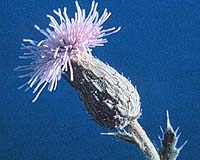 |
Sark, Channel Islands (AFP) May 12, 2010 A windswept isle in the English channel might not seem the place for a world quality vineyard, yet a project to produce the finest of tipples is underway thanks to funds from the reclusive billionaire Barclay brothers. "I was walking around the island and I just thought we could do this," Henry Strachey, a former fine art dealer and a determined oenophile, told AFP. "We're producing a lot of good, successful wine in England now, so why not here?" he said of the island of 600 people where cars are banned and which until recently was Europe's last feudal territory. Strachey put the idea to the Barclay brothers, who live on the neighbouring island of Brecqhou, and they agreed to back the project to the tune of a million euros (1.2 million dollars). They also provided around five hectares (12 acres) of land and hired Strachey to manage the vineyard. Technical know-how came in the shape of Alain Raynaud, a wine expert from France's Bordeaux region, and by end April a team of French labourers had planted the first vines in fields overlooking the clear, chilly waters of Sark -- a British crown dependency, nevertheless not part of Britain. The vineyard has been planted with different grape varieties -- chardonnay, sauvignon, pinot blanc and pinot gris for a planned white wine, and pinot noir and gamay for a red variety. "Nothing's been left to chance. We've done everything to ensure we'll be able to make a truly top quality wine that can be drunk here and can also cross the channel to be served at the Ritz hotel in London and establishments of that quality," said Raynuad, referring to the world famous London hotel, also owned by the Barclay brothers. Strachey hopes the Barclays' 42,000 vines could in a good year produce around 40,000 bottles of a wine that currently lacks one very important ingredient -- a name. "It's a slow process, we haven't had that 'eureka' moment yet. Who knows, somebody on the island may have a great idea," said Strachey. The new vineyard is taking shape as questions are raised about the effect of global warming on wine production. Ecological campaigners Greenpeace say unchecked greenhouse gas emissions could see vineyards displaced "more than 1,000 kilometres (621 miles) north by the end of the century. This essentially bad news may turn out to be advantageous for Sark, which is today at the edge of Europe's main wine producing regions. "We are seeing vines being planted again in England and areas above the Loire (in France), and Sark clearly fits that trend," said Raynaud. The islanders themselves seem to have mixed views about the vineyard. "If we can get more tourists to the island, that's positive. But they're taking up a lot of our land, which means less grazing for these guys," said Hayley Frankham, a horse-drawn carriage driver, pointing to her faithful steed. Sark's new vineyard moreover comes in troubled times. The picturesque island 30 kilometres (20 miles) off the French coast, with it's sandy beaches and shady woodland paths is still riven by the bitter recriminations that followed Sark's first elections late 2008. This poll marked the end of a feudal system of government that dated back to the 16th century. But local voters shunned candidates backed by the Barclay brothers and immediately after results were announced, the Barclays, by far the island's biggest employers, announced they would close down most of their operations on Sark. The pair are estimated by Forbes magazine to have a net worth of 1.76 billion euros (2.3 billion dollars). "It was a vote either for or against the Barclays' investment on Sark," their lawyer Gordon Dawes told Britain's Barclay-owned Telegraph newspaper at the time. The investments now seem to be back on track, but spend a day on the island and it is clear that the divisions and bad feelings remain. "If you say something good about the Barclays you get slagged off by the half of the island that doesn't like them. If you say something bad you get slagged off by the other half," said one young resident who asked not to be named. Strachey clearly hopes the vineyard will help heal his divided community and says he wants as many islanders as possible to feel part the scheme. "There's nothing like people being involved in something. It mends fences. It does all sorts of things. It helps people communicate. We all get involved with each other and we try and work together. For me, that's what it's about," he said.
Share This Article With Planet Earth
Related Links Farming Today - Suppliers and Technology
 Sudangrass Recommended To Combat Canada Thistle
Sudangrass Recommended To Combat Canada ThistleUrbana-Champaign IL (SPX) May 11, 2010 Farmers who don't rely on or want to minimize the use of chemical herbicides need creative solutions to win the battle against aggressive perennial weeds. In ongoing research at the University of Illinois on Canada thistle, Sudangrass is proving to be a worthy contender as a summer smother crop. "Sudangrass get very tall. It outcompetes the thistle for light. The Sudangrass creates shade s ... read more |
|
| The content herein, unless otherwise known to be public domain, are Copyright 1995-2010 - SpaceDaily. AFP and UPI Wire Stories are copyright Agence France-Presse and United Press International. ESA Portal Reports are copyright European Space Agency. All NASA sourced material is public domain. Additional copyrights may apply in whole or part to other bona fide parties. Advertising does not imply endorsement,agreement or approval of any opinions, statements or information provided by SpaceDaily on any Web page published or hosted by SpaceDaily. Privacy Statement |